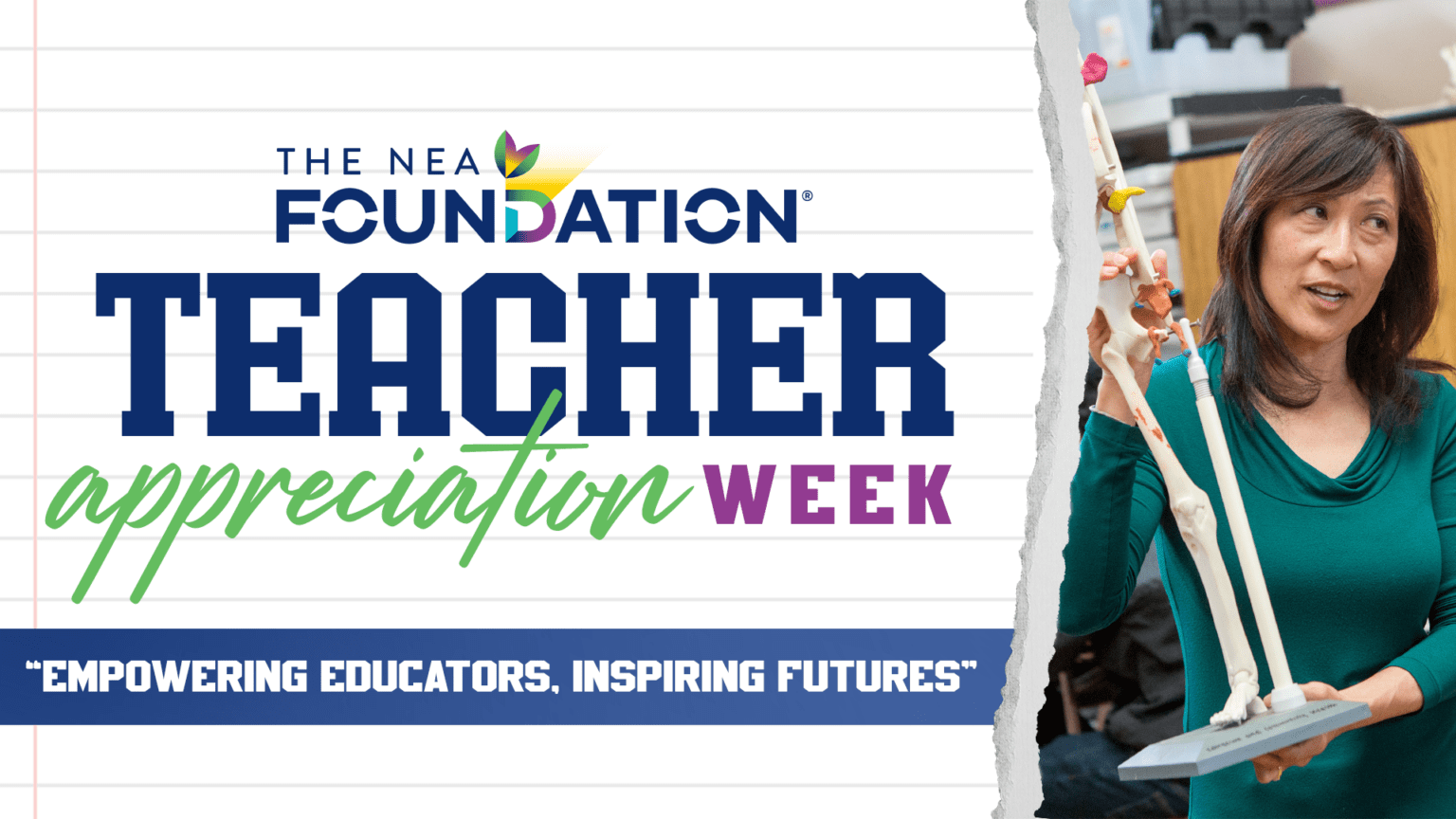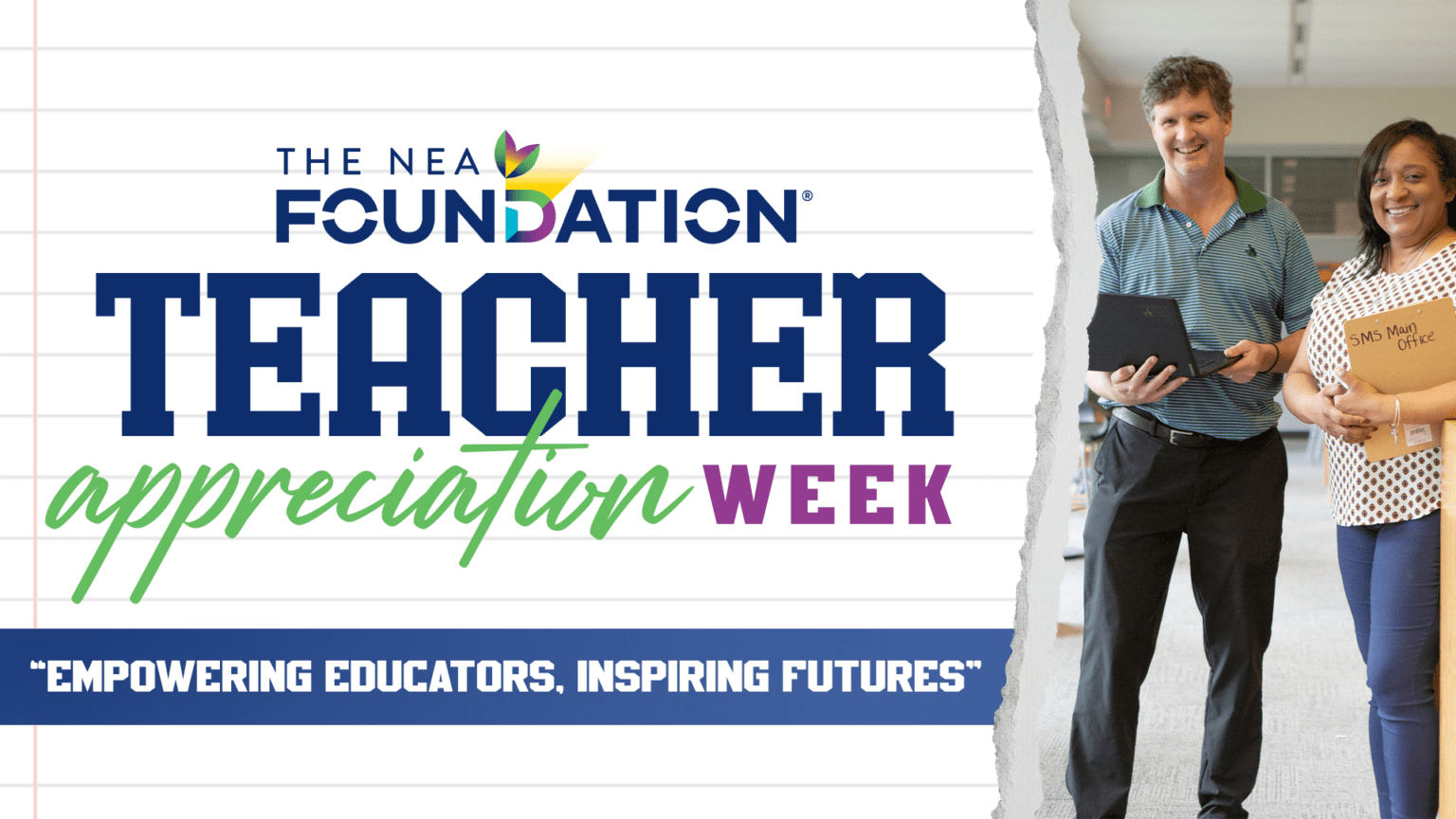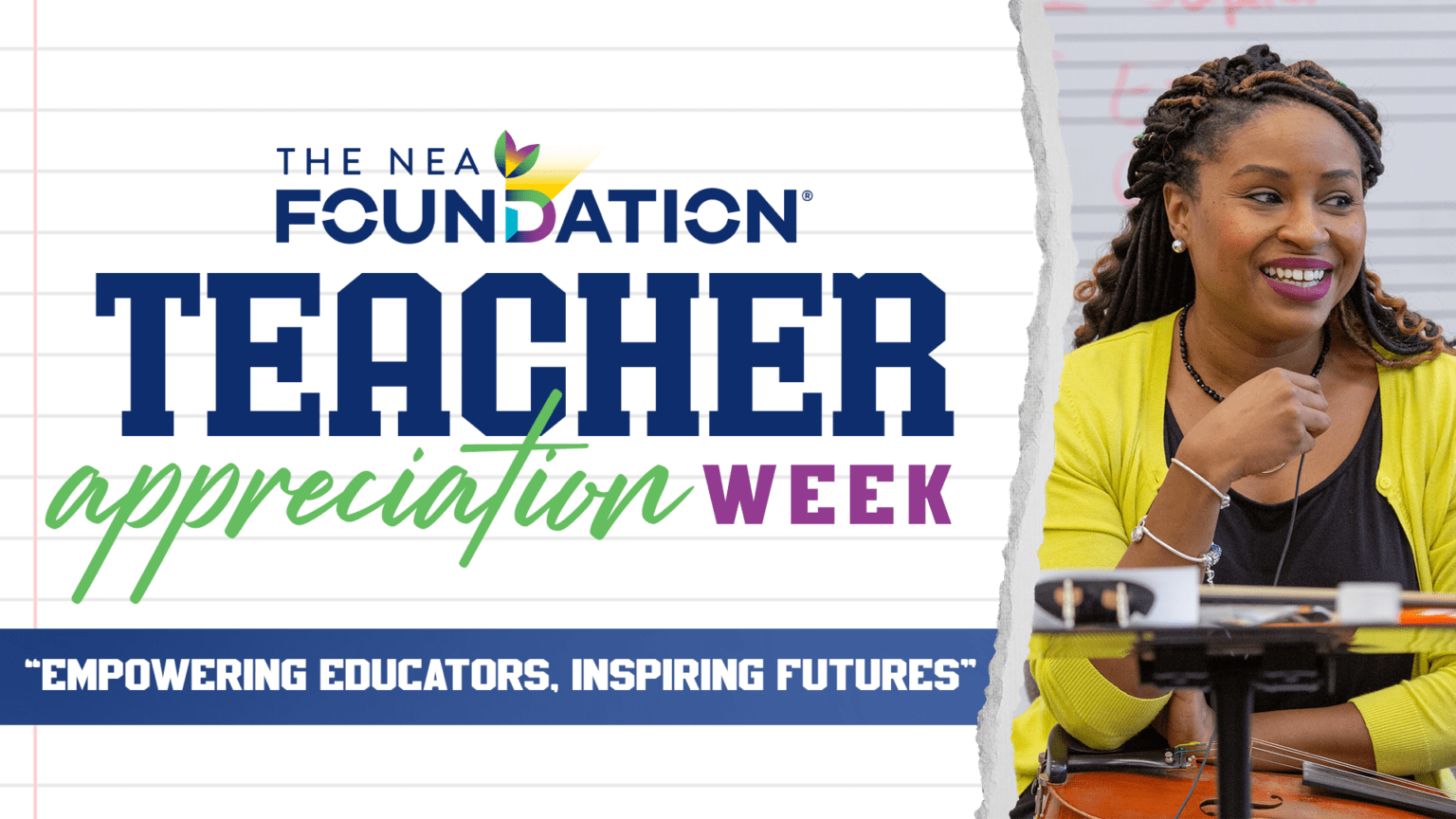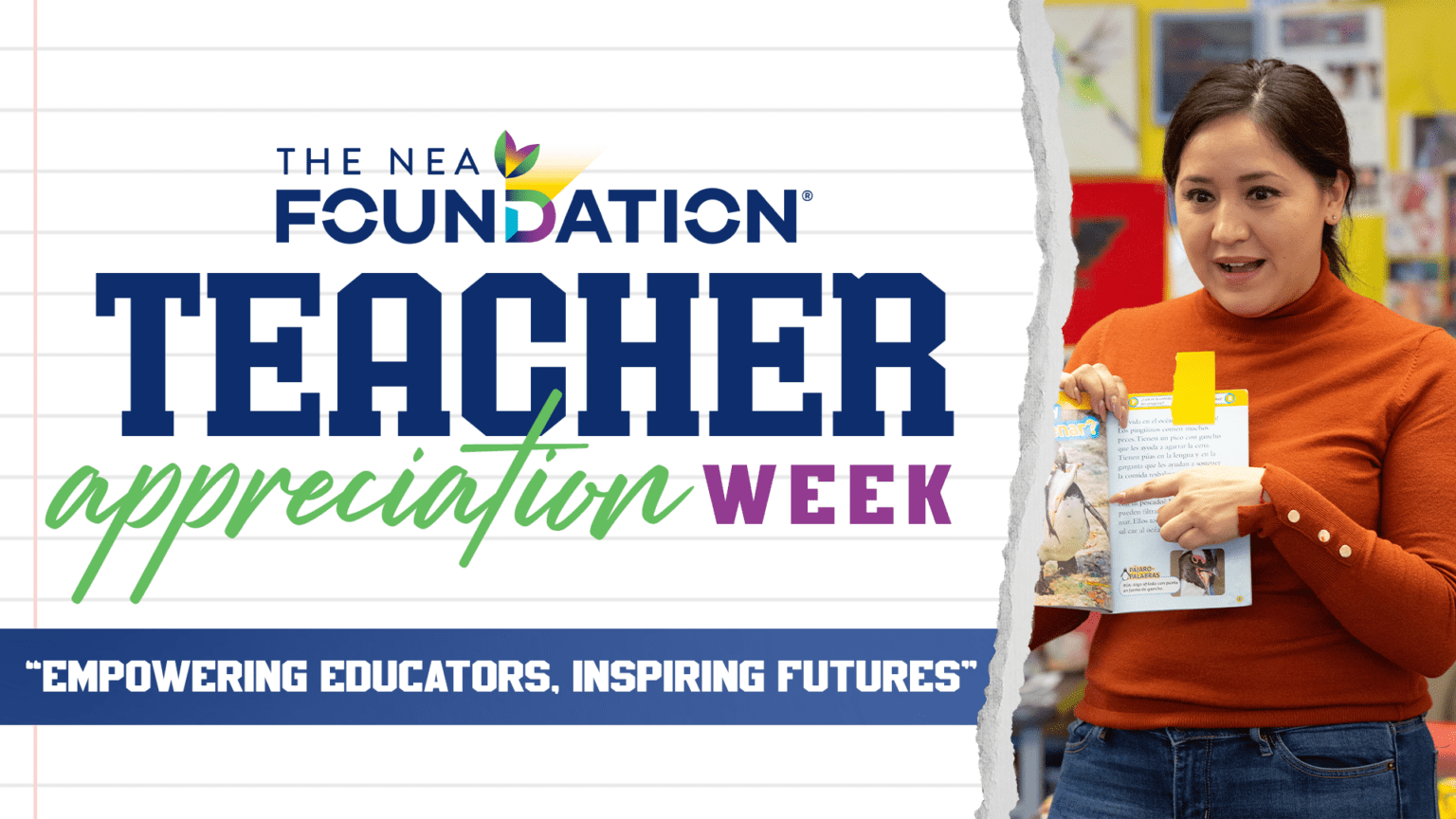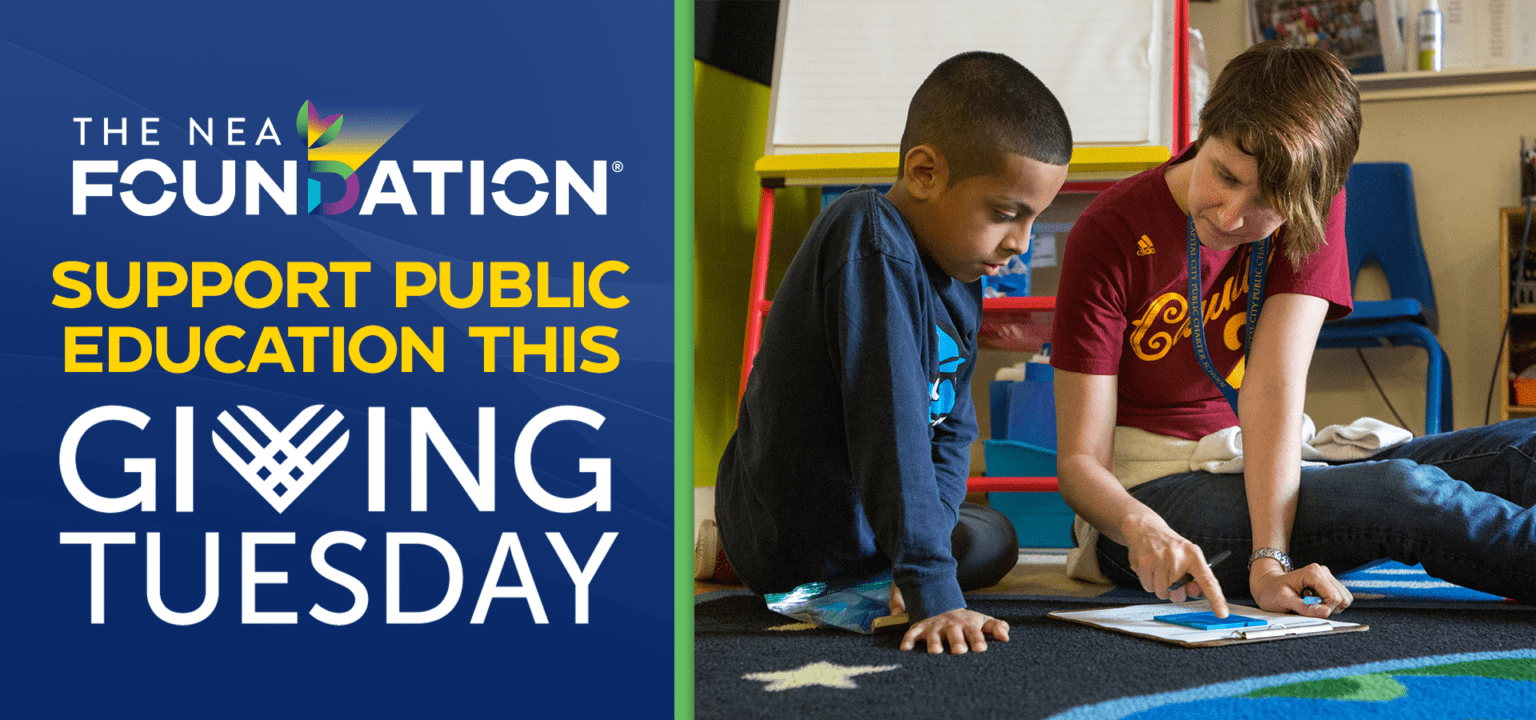This blog series features five educators who will be honored by The NEA Foundation with the prestigious 2016 Horace Mann Awards for Teaching Excellence, $10,000 and recognition as one of the nation’s top educators. They will be celebrated at the NEA Foundation’s Salute to Excellence in Education Awards Gala on February 12, 2016, in Washington, D.C.

For Pam Wells, the most important part of her classroom is the American flag. It’s the first thing students see when they enter. To Wells, it represents respect, diversity, and “a country that is known to be the melting pot. It reminds me to acknowledge the diversity of all of my students and what they offer in the classroom.”
She says the flag also represents opportunity— the opportunity for “all students— no matter the color of their skin, church they attend, amount of money in their pocket, or sexual preference—to find success in my classroom.”
Wells teaches science at Mobridge-Pollock High School in Mobridge, South Dakota. “There is an excitement in the air when I hear a student say, ‘So that’s why that works,’ or ‘I get this!’ Any topic that can be related to prior knowledge or experiences and makes sense to students is exciting to teach,” Wells says. “Students like knowing stuff, but when they can apply the knowledge in their daily lives, they own it and can make connections to other experiences they have.”

Wells’ classroom is more than just a place for students to learn; it’s a bridge that spans the opportunity gap. “It is difficult to see kids with broken spirits,” she says. “It is difficult to help them achieve their dreams because they feel they don’t deserve to have their wishes made true, or they don’t have the confidence to achieve that secret goal. Therefore, I build my classroom into a harbor… I get to school early and stay late.”
But Wells’ science lessons extend far beyond the classroom, leading students on an experiential learning adventure. She sponsors a science club and holds an environmental day at her school. She also organizes a science competition with local schools called “SMARTS Challenge.” These programs let students learn at their own pace, while exposing them to various careers in scientific fields. “All of these opportunities offer students a chance to experience the concepts of science through a different forum,” Wells says. “In these activities, there is no right answer, nor is there a wrong answer; it is just learning.”
Do you put your heart and soul into teaching? Check out which NEA Foundation Learning and Leadership Grants may apply to you. Learn more about NEA Foundation Grants for Educators today.

